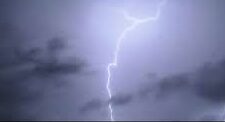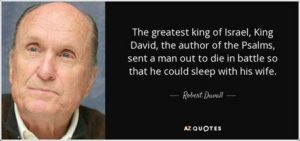Was Jesus Born as the Messiah, the Son of God?

An entirely new religion was spawned by the teachings and events surrounding Jesus of Nazareth – Christianity. Something profound eventually changed the official views of the Roman empire with Christianity going on to become the largest religion in the world, over 2 billion people today.[1]
Religion archenemies of Christianity commonly agree on the historical existence of Jesus of Nazareth. The fact that Jesus was crucified is a fundamental component of the Jewish religion to disavow Jesus as the Messiah.[3]
Gospels Matthew, Mark, Luke and John are accounts about the birth, life, death and resurrection of Jesus. They point out many Messiah prophecies that were fulfilled and cite many witness accounts to corroborate their accounts. Whether or not they were just a series of extreme coincidences points to the legal Doctrine of Chances.
Messiah prophecies that may have been fulfilled by Jesus of Nazareth originate in the Tenakh, the Old Testament. Christianity views prophecies that they believe refer to the Messiah were fulfilled by Jesus, such as the Branch prophecies of Isaiah, Jeremiah, Zechariah; the Psalms; the crucifixion and the Resurrection.
Judaism does not unanimously recognize some of these prophecies pertain to the Messiah. Renowned Jewish sages, including Rabbi Rashi and Rabbi Maimonides, had differing views on some prophecies deemed to be messianic by Christians.
One Messiah prophecy; however, is virtually undisputed by Jews or Christians alike – the Messiah would be born in the lineage of King David.[11] Gospels Matthew and Luke report that Jesus was a royal heir to David, a fact not a disputed by Judaism.
Birth circumstances described in Matthew and Luke spell out a scenario that uncannily lends credence for the Nativity story being dubbed “the greatest story ever told.” The Nativity story begins in three diverse countries of Rome, Persia and Judea, involves non-Jewish and non-Christian Magi, astronomy and a Roman Caesar. The Nativity story ends by converging in one place – Bethlehem.
Months in the making by the Roman government, the decree by Caesar Augustus forced the location change of the birthplace of Jesus. The decree in Nazareth compelled Joseph and Mary in her late-stage of pregnancy to abruptly make the days-long trek to Bethlehem where she went into labor. Had Jesus been born in Nazareth, it would have completely eliminated the potential fulfillment of Micah’s Bethlehem prophecy.[7]
Magi from the East presumed to be from Persia made preparations to travel around the edges of the vast Arabian Desert on a month’s long journey to Judea to find the newborn King of Israel. They were compelled by what they saw in the sky, not by any prophecies or scriptures.
Multiple rare planet and star conjunctions occurred in an unusually brief period of time shortly before the birth of Jesus, seconds in astronomical time. Typically these close conjunctions occur centuries or millennia apart; however, all occurred over the course of only months. [8] NASA astronomy science and technology confirms it all happened, both in timing and close proximity.[9]
Assessing all the circumstances involving the life of Jesus of Nazareth obviously has a direct impact on believability. The U.S. legal Doctrine of Chances suggests it was not an accident. Aside from prophecies coinciding with the birth, life, death and Resurrection, secular history and astronomy science corroborate the conclusion of the Doctrine.
What are the odds that Jesus was born as the Son of God, the Messiah?
Updated May 4, 2024.
This work is licensed under a Creative Commons Attribution-NonCommercial-NoDerivatives 4.0 International License.
REFERENCES:
[1] “What is the #1 religion in the world?” Search. Google. 2020. <https://www.google.com/search?q=what+is+the+%231+religion+in+the+world&oq=what+is+the+%231+rel&aqs=chrome.0.0i457j0j69i57j0j0i22i30l4.10361j0j7&sourceid=chrome&ie=UTF-8> Son of God. IMDb. image. 2014. <https://www.google.com/search/about-this-image?img=H4sIAAAAAAAA_wEXAOj_ChUI4ID5ruT3k9HoARCU1J76oOf90QTVdtnsFwAAAA%3D%3D&q=https:%2F%2Fwww.imdb.com%2Ftitle%2Ftt3210686%2F&ctx=iv&sa=X&ved=0CAwQg4ILahcKEwi4v6S08sSCAxUAAAAAHQAAAAAQKw>
[2] Hocken, Vigdis. “Common Era (CE) and Before Common Era (BCE).” TimeandDate.com. 2020. <https://www.timeanddate.com/calendar/ce-bce-what-do-they-mean.html> Mark, Joshua J. “The Origin and History of the BCE/CE Dating System.” Ancient History Encyclopedia. 2020. <https://www.ancient.eu/article/1041/the-origin-and-history-of-the-bcece-dating-system>
[3]“Jesus of Nazareth.” Jewish Encyclopedia. 2011. <http://www.jewishencyclopedia.com/articles/8616-jesus-of-nazareth> Messiah. Triton World Mission Center. image. n.d. <https://images.search.yahoo.com/yhs/search;_ylt=AwrFGczYdVhjL.gT5Bg2nIlQ;_ylu=c2VjA3NlYXJjaARzbGsDYnV0dG9u;_ylc=X1MDMTM1MTE5NTcwMgRfcgMyBGZyA3locy1hZGstYWRrX3NibnQEZnIyA3A6cyx2OmksbTpzYi10b3AEZ3ByaWQDMzh6Tm9GQmVSYTJoSU9hTDIzbDFOQQRuX3JzbHQDMARuX3N1Z2cDMARvcmlnaW4DaW1hZ2VzLnNlYXJjaC55YWhvby5jb20EcG9zAzAEcHFzdHIDBHBxc3RybAMwBHFzdHJsAzIzBHF1ZXJ5A01lc3NpYWglMjBwcm9waGVjeSUyMGltYWdlcwR0X3N0bXADMTY2Njc0MjIyNw–?p=Messiah+prophecy+images&fr=yhs-adk-adk_sbnt&fr2=p%3As%2Cv%3Ai%2Cm%3Asb-top&ei=UTF-8&x=wrt&type=yhs-adk_sbnt_appfocus1_sm_ff&hsimp=yhs-adk_sbnt&hspart=adk¶m1=20210118¶m2=00000000-0000-0000-0000-000000000000¶m3=searchmanager_%7EUS%7Eappfocus1%7E¶m4=%7Efirefox%7E%7E#id=158&iurl=http%3A%2F%2Ftritonubf.com%2Fwp-content%2Fuploads%2F2018%2F04%2FThe-Messiah-in-Judaism-Christianity-and-Islam-04.jpg&action=click>
[4] Maimon, Moshe ben (Maimonides). “Melachim uMilchamot.” Chabad.org. Chapter 11, #4. <https://www.chabad.org/library/article_cdo/aid/1188356/jewish/Melachim-uMilchamot-Chapter-11.htm> CR I Chronicles 9:1; Matthew 1:5; Luke 3:32. Josephus, Flavius. Against Apion. Trans. and commentary William Whitson. Book 1, #7. The Complete Works of Josephus. <http://books.google.com/books?id=e0dAAAAAMAAJ&printsec=frontcover&source=gbs_ge_summary_r&cad=0#v=onepage&q&f=false> Hall, David Markel. “The Temple of G-d.” 1997. Zion Messianic Congregation of Austin, Texas. <http://tzion.org/articles/temple.html> “Jewish Genealogy & Surnames.” Archives. Archives.com. n.d. <http://www.archives.com/genealogy/family-heritage-jewish.html> “Jesus.” Encyclopaedia Judaica. pp 246-251. Encyclopaedia Judaica. Eds. Michael Berenbaum and Fred Skolnik. Vol. 11. 2nd edition. <http://go.galegroup.com/ps/infomark.do?action=interpret&eisbn=9780028660974&prodId=GVRL&userGroupName=imcpl1111&type=aboutBook&version=1.0&authCount=1&u=imcpl1111>
[5] Quran. Trans. Abdullah Yusuf Ali. n.d. Search “Jesus.” <http://search-the-quran.com> “The Descriptive Titles of Jesus in the Quran (part 1 of 2): “The Messiah” and “a Miracle.”’ IslamReligion.com. 2020. <http://www.islamreligion.com/articles/230> The Quran. JM Rodwell Translation With text notes. “Preface.” <http://www.truthnet.org/islam/Quran/Rodwell/Introduction.html>
[6] Matthew 2:1, 22; 27:2; Mark 15:1; Luke 2:1-2; John 19:1.
[7] Micah 5:2 (verse 1 in Jewish Bibles).
[8] Ventrudo, Brian. “Measuring The Sky.” “Venus and Jupiter’s Upcoming Conjunction.” Universe Today. 2004. <http://www.universetoday.com/10006/venus-and-jupiters-upcoming-conjunction/#ixzz2B6cvKJEt> Dickinson, David. “Is This Month’s Jupiter-Venus Pair Really a Star of Bethlehem Stand In?” Universe Today. 2015. <https://www.universetoday.com/122738/is-this-months-jupiter-venus-pair-really-a-star-of-bethlehem-stand-in/> Beatty, Kelly. “Venus and Jupiter: Together at Last.” Sky & Telescope. 2015. <http://www.skyandtelescope.com/astronomy-news/observing-news/venus-and-jupiter-a-dazzling-duo-062520154 > Cain, Fraser. “Venus and Jupiter’s Upcoming Conjunction.” Universe Today. 2004. http://www.universetoday.com/10006/venus-and-jupiters-upcoming-conjunction/#ixzz2B6cvKJEt> Carroll, Susan S. “The Star of Bethlehem: An Astronomical and Historical Perspective.” Pulcherrima Productions. 1997. Twin Cities Creation Science Association. n.d. <http://www.tccsa.tc/articles/star_susan_carroll.pdf>
[9] Phillips, Tony. “A Christmas Star for SOHO.” NASA Science | Science New. 2018. <http://science.nasa.gov/science-news/science-at-nasa/2000/ast16may_1> Haley, A. S. “The Star of Bethlehem and the Nativity.” Anglican Curmudgeon. Video. 2009. <http://accurmudgeon.blogspot.com/2009/10/star-of-bethlehem-and-nativity.html> CR “Birth of Jesus.” Navsoft.com. 2012. http://navsoft.com/html/birth_of_jesus.html> Clevenger, John. “Astronomy, Astrology, and the Star of Bethlehem.” Lake County (Illinois) Astronomical Society. 2012. <http://www.lcas-astronomy.org/articles/display.php?filename=the_christmas_star&category=miscellaneous>
[10] Matthew 2:1-3.
[11] Maimon, Moshe ben (Maimonides). “Melachim uMilchamot.” Chabad.org. Chapter 11, #4. Numbers 17-19. The Complete Jewish Bible. Rashi Commentary. <https://www.chabad.org/library/bible_cdo/aid/9952/showrashi/true

 Three of David’s brothers were fighting in Israel’s army supported by their father who routinely sent David to them with supplies. During one visit, David was astonished to see Israel’s army afraid of an ace giant Philistine warrior named Goliath who challenged and taunted Israel’s army daily.
Three of David’s brothers were fighting in Israel’s army supported by their father who routinely sent David to them with supplies. During one visit, David was astonished to see Israel’s army afraid of an ace giant Philistine warrior named Goliath who challenged and taunted Israel’s army daily. Uriah was summoned from the battlefield at the behest of David under the pretense of earning a well-deserved leave from duty. The true reason was to give Bath-Sheba an opportunity to have marital relations with her husband to legitimize her pregnancy.
Uriah was summoned from the battlefield at the behest of David under the pretense of earning a well-deserved leave from duty. The true reason was to give Bath-Sheba an opportunity to have marital relations with her husband to legitimize her pregnancy.